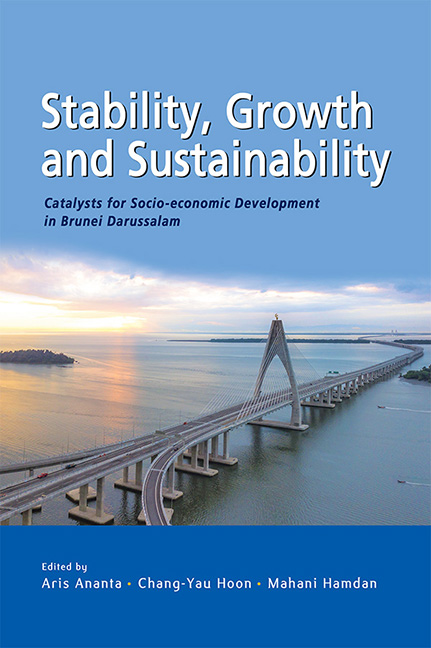8 - Learning as Becoming Brunei 2035: Shifting the Nature and Scope of Technical and Vocational Education and Training
Published online by Cambridge University Press: 10 January 2024
Summary
PREAMBLE: HIGHER SKILLED AND MOTIVATED WORKFORCE FOR BRUNEI 2035
The acceleration of the inevitable disruptive changes to work due to rapid technological advancements will profoundly impact the employment landscape over the coming years for many countries, including Brunei. With such an evolving employment landscape, it would seem challenging to prepare workers for jobs that do not yet exist. These changes are not only non-linear and unpredictable, but are also imminent. The significant impact on jobs could range from job creation to job displacement and heightened labour productivity to widening skills gaps. One of the apparent signs of the changing employment landscape is many in-demand occupations that exist now did not exist several years ago. According to the World Economic Forum (2016), approximately 65 per cent of today’s children will find themselves working in jobs that do not exist now. This salient statement has urgent implications on future jobs which will require a new set of technical and soft skills.
Advances in digitalization could lead to revolutionary changes such as a significant disruption to the labour market, where many sectors will face chronic unemployment due to the replacement of routine human jobs involving repetitive and regimented tasks. On the other hand, these revolutionary changes could also present unprecedented business opportunities, job creation and sustainable economic growth (Chui, Manyika and Miremadi 2016; Frey and Osborne 2017; OECD 2016). These changes raise new challenges for i) the preparation of future higher skilled and motivated workforce through education and training, and ii) maintaining the employability of the existing workforce through continuing education and workplace learning, in order to upskill or reskill to remain relevant to the needs of the labour market.
The purpose of this chapter is to illuminate the contribution of Brunei’s Technical and Vocational Education and Training (TVET) in promoting vocational competence of the future and existing workforce in realizing Wawasan 2035. The initial part of the chapter will describe the concept of “vocational education and training” and its significant position within Brunei’s education system. The subsequent section provides an overview of the developments focusing on key milestones of Brunei’s TVET landscape.
- Type
- Chapter
- Information
- Stability, Growth and SustainabilityCatalysts for Socio-economic Development in Brunei Darussalam, pp. 195 - 220Publisher: ISEAS–Yusof Ishak InstitutePrint publication year: 2023



